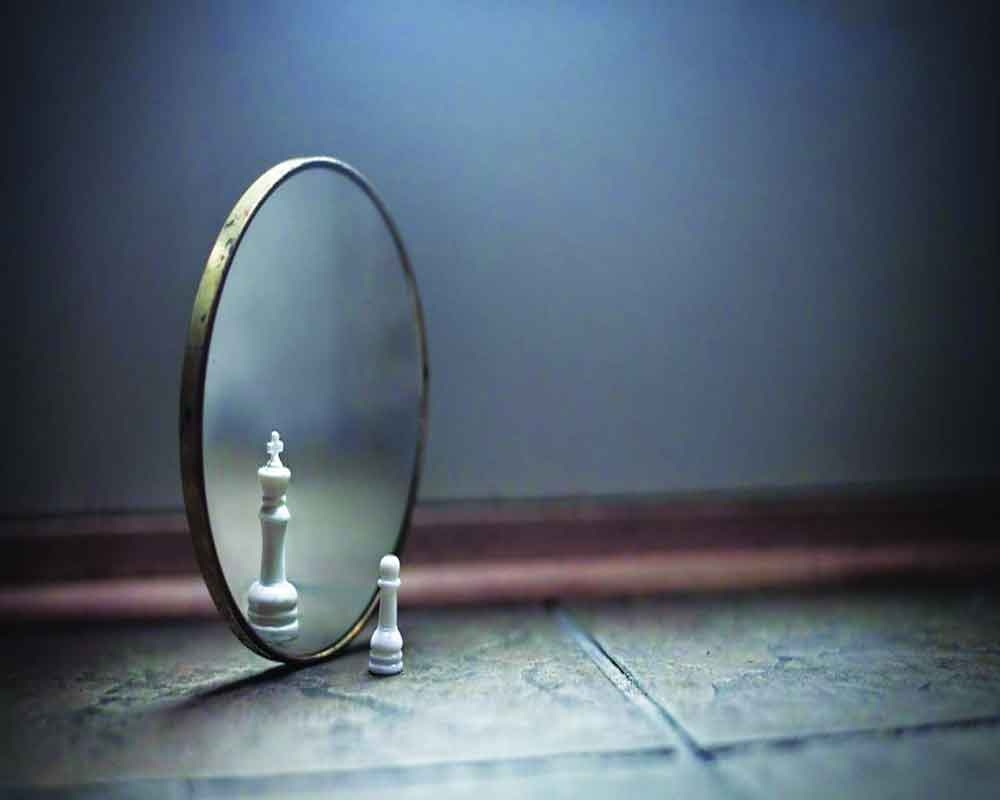I’ve been thinking about a statement I sometimes hear from people who are confronted with something offensive or shocking that they have said or done: “That’s not who I am.” Many times this can come from celebrities or athletes embarrassed while caught in the brief flash of the ever-judgemental news cycle. I’ve also heard this from everyday people who have unleashed public tirades on a person they have identified as other or less than, after the scene was video recorded and posted to social media.
As a defense, explanation or excuse, “That’s not who I am” may bring some short-term comfort to the idealized self-image we carry within. A more honest refinement to the declaration might proceed this way: “That’s not all of who I am.”
We contain multitudes- of songs, friendships, drives, questions, beliefs, and the memories of our own lived experiences, as well what we’ve inherited from our parents and all of our ancestors through the energy field of our family soul. Our early childhood experiences came first and deeply impacted the fresh tissues of our being in our formative years. When we’re under stress and approaching fight or flight decisions, it’s those early and intense impulses that can rise to the surface and wrestle down our adult skills of moderation and self-restraint. If that happens, especially if we’re under the influence of drugs, alcohol or the need to prove belonging to a group or identity, we may say or do things we will later regret.
Who has responsibility for the things we find unacceptable in ourselves?
What do we do about the interior elements that hide in the shadows until they leap out, against our will, and put a dent in our ego’s need to be seen as good?
I read an excerpt from Mark Lilla’s book “Ignorance and Bliss: On not wanting to know” last summer, and it has stayed with me. I keep it in a small interior place and bring it out from time to time like a worry stone. The excerpt includes this passage from St. Augustine’s “Confessions:”
While he was speaking, Lord, you turned my attention back to myself. You took me up from behind my own back, where I had placed myself because I did not wish to observe myself, and you set me before my face so that I should see how vile I was, how twisted and filthy, covered in sores and ulcers. And I looked and was appalled, but there was no way of escaping from myself. If I tried to avert my gaze from myself, his story continued relentlessly, and you once again placed me in front of myself; you thrust me before my own eyes so that I should discover my iniquity and hate it. I had known it, but deceived myself, refused to admit it, and pushed it out of my mind.
For many of us who had difficult and unhealed family experiences when young, there can come a stage in the healing process when we identify the ones who caused us harm and place them in the defined role of perpetrator. If we’re not extra careful, we can conclude that they’re bad, and we’re better than that. Eventually if we maintain this outlook we may begin to reflexively offload some of the responsibility for our adult words and deeds onto those others. That’s not who I am. Yet when someone we’re with experiences us at less than our best, they don’t see anyone from our family behind us. There’s just one person there.
One of the powerful things I love about the healing approach of Family Constellations is how it places me in the larger picture of my overall family system. I’m just one part of a large group of souls who all came to life with their own unique agendas. These include gifts and skills, a life purpose to pursue, uncover and manifest, and quizzes, tests, research papers and final exams that go on throughout the lifetime. When I can see my family members this way I can (with ongoing practice) transcend the need to see anyone as better or worse. Just as I’m not going to complete my soul’s work in this lifetime, my parents and all my ancestors did all they could with the time they had and the conditions into which they were born in their own families. When I can accept that as reality, I begin to unhook from the need that anyone or anything had been different. This brings a freedom to my soul that I need to truly live my own purpose.
The practice of taking responsibility for all aspects of our lives is a difficult and liberating path. Difficult, because I may not at first know how, but I can commit to avoiding making any excuses in the future. Liberating, because when it’s done well I can leave responsibility for the actions of others with them and their soul, and only take responsibility for what is mine. Surprisingly, the disentangling can leave us with more understanding and compassion for all of our family members, and provide us more adult strength we’ll need to create whatever it is we came to life to give.
